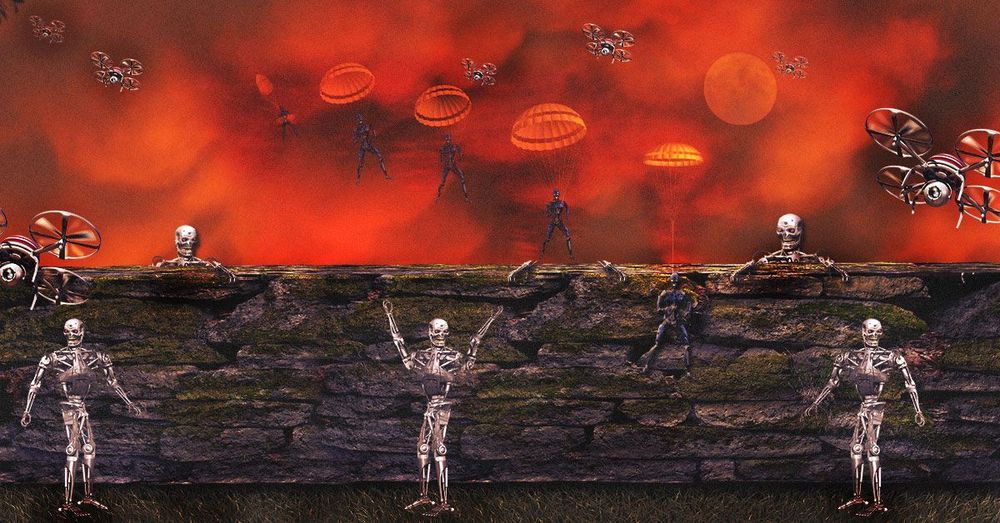On GPT-3, achieving AGI, machine understanding and lots more… Will GPT-3 or an equivalent be used to deepfake human understanding?
Joscha Bach on GPT-3, achieving AGI, machine understanding and lots more
02:40 What’s missing in AI atm? Unified coherent model of reality
04:14 AI systems like GPT-3 behave as if they understand — what’s missing?
08:35 Symbol grounding — does GPT-3 have it?
09:35 GPT-3 for music generation, GPT-3 for image generation, GPT-3 for video generation
11:13 GPT-3 temperature parameter. Strange output?
13:09 GPT-3 a powerful tool for idea generation
14:05 GPT-3 as a tool for writing code. Will GPT-3 spawn a singularity?
16:32 Increasing GPT-3 input context may have a high impact
16:59 Identifying grammatical structure & language
19:46 What is the GPT-3 transformer network doing?
21:26 GPT-3 uses brute force, not zero-shot learning, humans do ZSL
22:15 Extending the GPT-3 token context space. Current Context = Working Memory. Humans with smaller current contexts integrate concepts over long time-spans
24:07 GPT-3 can’t write a good novel
25:09 GPT-3 needs to become sensitive to multi-modal sense data — video, audio, text etc
26:00 GPT-3 a universal chat-bot — conversations with God & Johann Wolfgang von Goethe
30:14 What does understanding mean? Does it have gradients (i.e. from primitive to high level)?
32:19 (correlation vs causation) What is causation? Does GPT-3 understand causation? Does GPT-3 do causation?
38:06 Deep-faking understanding
40:06 The metaphor of the Golem applied to civ
42:33 GPT-3 fine with a person in the loop. Big danger in a system which fakes understanding. Deep-faking intelligible explanations.
44:32 GPT-3 babbling at the level of non-experts
45:14 Our civilization lacks sentience — it can’t plan ahead
46:20 Would GTP-3 (a hopfield network) improve dramatically if it could consume 1 to 5 trillion parameters?
47:24 GPT3: scaling up a simple idea. Clever hacks to formulate the inputs
47:41 Google GShard with 600 billion input parameters — Amazon may be doing something similar — future experiments
49:12 Ideal grounding in machines
51:13 We live inside a story we generate about the world — no reason why GPT-3 can’t be extended to do this
52:56 Tracking the real world
54:51 MicroPsi
57:25 What is computationalism? What is it’s relationship to mathematics?
59:30 Stateless systems vs step by step Computation — Godel, Turing, the halting problem & the notion of truth
1:00:30 Truth independent from the process used to determine truth. Constraining truth that which can be computed on finite state machines
1:03:54 Infinities can’t describe a consistent reality without contradictions
1:06:04 Stevan Harnad’s understanding of computation
1:08:32 Causation / answering ‘why’ questions
1:11:12 Causation through brute forcing correlation
1:13:22 Deep learning vs shallow learning
1:14:56 Brute forcing current deep learning algorithms on a Matrioshka brain — would it wake up?
1:15:38 What is sentience? Could a plant be sentient? Are eco-systems sentient?
1:19:56 Software/OS as spirit — spiritualism vs superstition. Empirically informed spiritualism
1:23:53 Can we build AI that shares our purposes?
1:26:31 Is the cell the ultimate computronium? The purpose of control is to harness complexity
1:31:29 Intelligent design
1:33:09 Category learning & categorical perception: Models — parameters constrain each other
1:35:06 Surprise minimization & hidden states; abstraction & continuous features — predicting dynamics of parts that can be both controlled & not controlled, by changing the parts that can be controlled. Categories are a way of talking about hidden states.
1:37:29 ‘Category’ is a useful concept — gradients are often hard to compute — so compressing away gradients to focus on signals (categories) when needed
1:38:19 Scientific / decision tree thinking vs grounded common sense reasoning
1:40:00 Wisdom/common sense vs understanding. Common sense, tribal biases & group insanity. Self preservation, dunbar numbers
1:44:10 Is g factor & understanding two sides of the same coin? What is intelligence?
1:47:07 General intelligence as the result of control problems so general they require agents to become sentient
1:47:47 Solving the Turing test: asking the AI to explain intelligence. If response is an intelligible & testable implementation plan then it passes?
1:49:18 The term ‘general intelligence’ inherits it’s essence from behavioral psychology; a behaviorist black box approach to measuring capability
1:52:15 How we perceive color — natural synesthesia & induced synesthesia
1:56:37 The g factor vs understanding
1:59:24 Understanding as a mechanism to achieve goals
2:01:42 The end of science?
2:03:54 Exciting currently untestable theories/ideas (that may be testable by science once we develop the precise enough instruments). Can fundamental physics be solved by computational physics?
2:07:14 Quantum computing. Deeper substrates of the universe that runs more efficiently than the particle level of the universe?
2:10:05 The Fermi paradox
2:12:19 Existence, death and identity construction.






